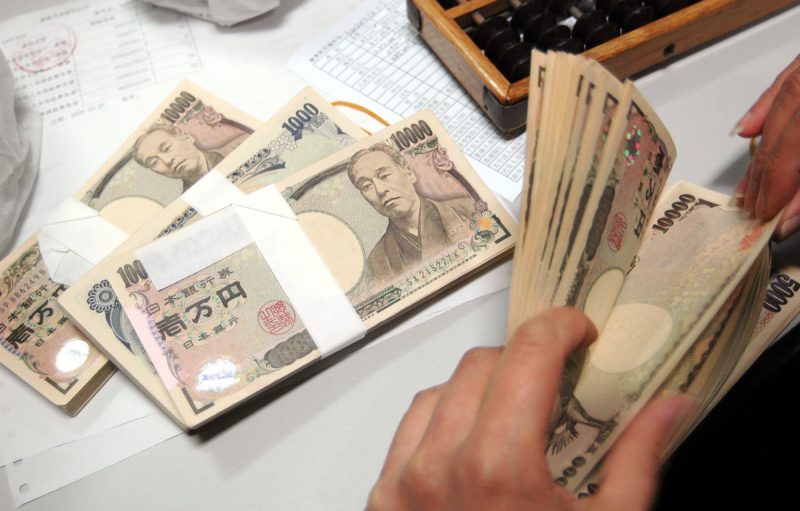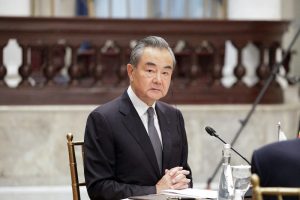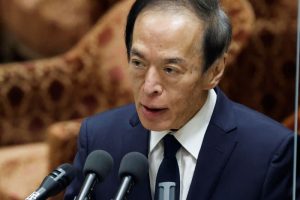The yen dropped below the key level of 150 to the dollar in late trading on Thursday – its lowest level in 32 years, despite repeated efforts by Japanese policymakers to counter “excessive volatility” in the currency.
Dealers were watching for intervention in the foreign exchange market, as the 150 level was a key barrier for the yen.
Earlier in the day, the Bank of Japan said it would conduct emergency bond-buying, as the currency has not visited these levels since 1990.
The central bank was offering to buy $667 million in government debt – in a move designed to put a floor under bond prices.
The announcement from the BoJ came as the yen teetered near 150 to the dollar, a level that was seen as psychologically important for market players.
Also on AF: Australia Bids to Boost Pacific Defence Links, Counter China
Will the BoJ Change Tack?
Currencies all across Asia and the Pacific have plunged in the face of rising US interest rates and the soaring dollar. Attention will now focus on whether the Bank of Japan retains its ‘ultra-loose’ policy, or changes tack.
The yen has been hammered this year by the widening difference between US and Japanese interest rates.
Some investors have bet Japan will need to ditch its long policy of “yield curve control”, or YCC – where it buys massive amounts of bonds to keep the yield on 10-year debt at around 0%.
But the central bank has so far showed no sign of changing tack. Policymakers in the world’s third-largest economy have repeatedly stressed the need to keep policy ultra-loose, citing a fragile recovery, weak domestic demand and plenty of overseas risks.
Thursday’s move showed the BOJ was continuing to buy bonds and keeping the YCC policy in place. The central bank said it would buy 100 billion yen ($667 million) of JGBs with maturities of 10-20 years and another 100 billion of bonds with maturities of 5-10 years.
The yield on the benchmark 10-year JGB briefly touched 0.255% for the second straight day, above the BOJ’s policy ceiling, before retreating to 0.25%, within the band.
Cost of Commodity Imports Rising
Finance Minister Shunichi Suzuki signalled his government’s readiness to act on Tuesday after the yen hit a new 32-year low. “We are closely watching market moves with a high sense of urgency. We will make an appropriate response decisively to excessive moves,” Suzuki told a session of parliament on Tuesday.
The yen slipped to 149.10 to the dollar before the start of Asia trade on Tuesday, its weakest since August 1990, putting the 150 barrier in focus.
Policymakers, who once zeroed in on yen strength as a source of concern for the trade-oriented economy, are now worried that the yen’s sharp fall is boosting already high commodity import costs, squeezing households, and upending business plans.
Authorities have fired verbal warnings against the yen’s descent almost daily since early September, when it reached 144 to the dollar as rate hikes by the Federal Reserve boosted the US currency.
Down 20% This Year
Suzuki first acknowledged yen weakness as negative for the economy in April, when it was trading around 126 per dollar. It has continued to fall sharply and is down about 20% since the start of the year.
Japan spent 2.8 trillion yen ($18.81 trillion) in dollar-selling, yen-buying intervention last month when authorities acted in the markets to prop up the yen for the first time since 1998.
Estimates by the Bank of Japan released last Friday showed that excess reserves parked by institutions at the central bank would likely have declined 4.09 trillion yen as of Monday, October 17, due in part to actions that could be related to currency intervention.
- Reuters with additional editing by Jim Pollard.
NOTE: This report was updated on October 20, 2022 after the yen sank below the 150 mark to the dollar.
ALSO SEE:
US, Taiwan in Talks Over Joint Weapons Production: Nikkei
We Will Never Rule Out Using Force on Taiwan: Xi Jinping
China Tensions Creating Serious Tests for Chip Industry: TSMC
























